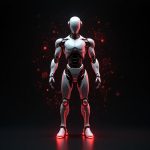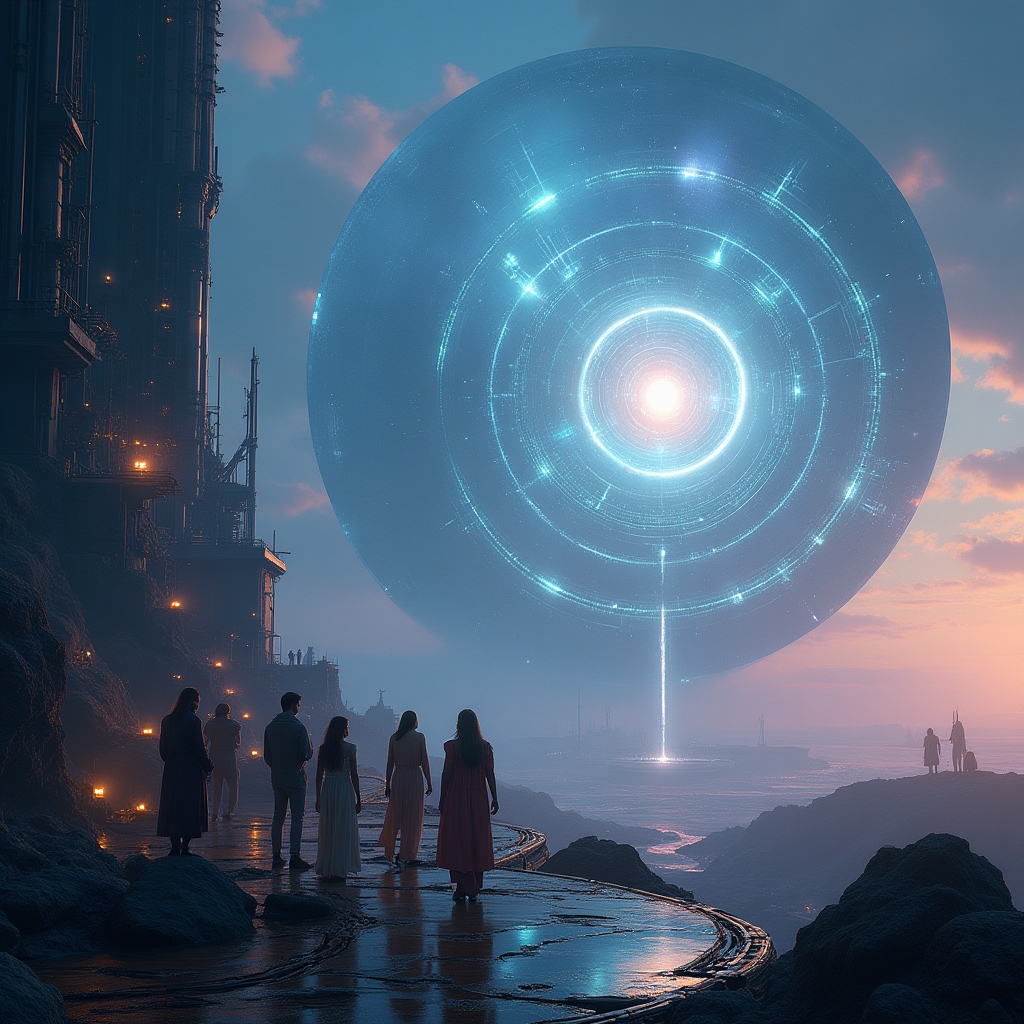Artificial Intelligence, once the stuff of science fiction, has quickly become an integral part of our everyday lives. Now, it's not just about making life a bit easier; it's about redefining what "easy" means. In this comprehensive roundup of AI news from December, we delve deep into groundbreaking research, innovative developments, and the potential future of AI technology that could change the world forever—buckle up, because things are about to get mind-blowingly awesome!
Blueprints for Brainy Machines
Imagine having a recipe book to recreate the cognitive prowess of a future AI with superhuman capabilities. According to a video by TheAIGRID, researchers in China have published such a manuscript. This detailed research paper outlines how the reasoning abilities of AI can be built from four fundamental pillars. This isn't just mere theory—it's a strategy that could lead us to a level of artificial superintelligence (ASI) previously confined to the realm of sci-fi.
The implications here are groundbreaking. We've already witnessed AI like AlphaGo conquering tasks with superhuman proficiency, and now we stand on the brink of building machines that could potentially surpass even these achievements. Picture an AI that doesn't just play the game but changes the rules while playing, pushing the envelope in almost every conceivable field.
Tokyo's 3D Digital Twin: Navigating A Virtual Cityscape
The city of Tokyo has stepped into the future by creating a high-resolution 3D digital twin of itself. This development, as reported by Dr. Jim Fan of NVIDIA, is part of an inevitable trend where our environments, from cities to individual houses, are being translated into digital arenas. This means robotics can be trained in these simulations, ready for zero-shot deployment into the real world, skipping traditional testing realms.
Imagine a robot that learns to navigate your home after scanning it. Is your kitchen a complex maze or an ordinary setup? It doesn't matter—this AI-ready genie can handle it all, helping you live your best Jetsons life. It's sci-fi met reality as we brace for what's to come in 2025 and beyond.
The Hallucinating Brain: When AI Dreams Are Design Dreams
AI isn't without its quirks, like its pesky habit of fabricating seemingly factual information (a feature whimsically called "hallucinations"). However, there's a silver lining, which is proving valuable in the realm of scientific discovery. AI systems, when hallucinating, can stumble upon unprecedented insights that might lead to breakthroughs. Picture AI channeling its inner creative, formulating new ways to design drugs, track cancer, or uncover new weather phenomena. Who knew dreams could be so...useful?
Gaming’s Next Frontier: AI-Generated Worlds
In the past, video games have introduced us to fantastical worlds—a feat in itself. Now, with Google's Genie 2, we can create and explore entire gaming worlds with simple text prompts. Whether you're zipping through the Martian landscape in a sci-fi RPG or delving into a serene farming simulator, AI-generated personal gaming experiences could soon be as common as your morning coffee.
This tech could redefine gaming as we know it. Think procedurally generated worlds that offer endless playability, ensuring every player’s journey is uniquely their own. Let's be honest—who wouldn't want an AI-crafted universe tailored specifically for them?
Beyond Traditional Forecasting: AI's Meteorological Edge
Moving beyond ordinary windy predictions and cloudy cliffs, AI is transforming weather forecasting. Google's GenCast from DeepMind promises faster, more accurate weather forecasts than ever before. This isn't just about deciding whether to carry an umbrella—it's about enabling farmers to grow better crops and ensuring communities can adequately prepare for extreme weather. With MetNet 3 and GraphCast, AI is ushering in a new era of weather forecasting that could save lives and change professions.
Amazon’s AI Evolution: Nova Pro and the Foundation Model Wave
When innovation calls, giants like Amazon answer. Jumping into the generative AI game, they offer three distinct models: Nova Pro, Nova Light, and Nova Micro. These models are designed to power everything within Amazon's expanding AI ecosystem, from making Alexa smarter to optimizing warehouse logistics.
Modern AI, likened to electricity in its universal application, is set to transform virtually every facet of life, starting from these foundational models. Combined with Amazon's ambition to develop their own superior hardware, these AI marvels promise a cascade of improvements to their services, aligning with (CEO Jeff Bezos)'s AI-centric vision.
3D AI Transformations: Physical Worlds Go Digital
As AI continues its relentless march, researchers at ByteDance are pioneering the transformation of our yin half—real-world actions translated into the yang of the digital domain. This is where physical environments meet digital worlds, facilitated by AI that can craft 3D animations from mere images.
The implications are paradigm-shattering. Imagine create-anything-worlds where commercial enterprises can simulate consumer interactions, or designers can visualize architectural projects before the first stone is laid.
An AI Procession: Humanoid Robots Taking Center Stage
Ever since the dawn of mechanization, humanoid robots have captured our imaginations. Now, with leaps in AI and mechanical precision, these robots are not just science fiction—they’re a functional reality. We've witnessed these AI laborers take their first steps into real-world roles, from factories to service industries.
China leads the charge, demonstrating robots ready to integrate seamlessly into daily workflows, like diligent coworkers that neither tire nor complain. The ramifications for global labor markets are profound, and discussions are already underway about potential regulations and rights for our metal-composed compatriots.
A Quantum Leap Worth Watching
We stand on the threshold of a quantum era akin to that of the legendary Satoshi Nakamoto vision. The synthesis of AI with quantum mechanics promises to accelerate developments far beyond current scientific boundaries. Microsoft’s CEO Satya Nadella heralds this shift as something that will not only drive more innovation but reshape industries.
The symbiosis of AI and quantum is slated to work wonders, in media production, pharmaceuticals, astronomy—the prospects are dizzyingly limitless. AI won’t just assist scientists; it will enable anyone with a thought and a laptop to experiment in domains once restricted to the elite.
In the realm of AI, the sky is no longer the limit—it's just the beginning of a boundless frontier.
Now, what are your thoughts? Do you think AI's ascent will continue to benefit society, or do we risk spiraling into a sci-fi dystopian reality where machines disrupt more than they enhance? Share your thoughts below!
Join the iNthacity community, become a part of our digital city—a "Shining City on the Web"— by applying to become permanent residents and eventually, citizens. Dive into this conversation, like, share, and don't miss out on any updates by subscribing to our newsletter!
Disclaimer: This article may contain affiliate links. If you click on these links and make a purchase, we may receive a commission at no additional cost to you. Our recommendations and reviews are always independent and objective, aiming to provide you with the best information and resources.
Get Exclusive Stories, Photos, Art & Offers - Subscribe Today!

























1 comment